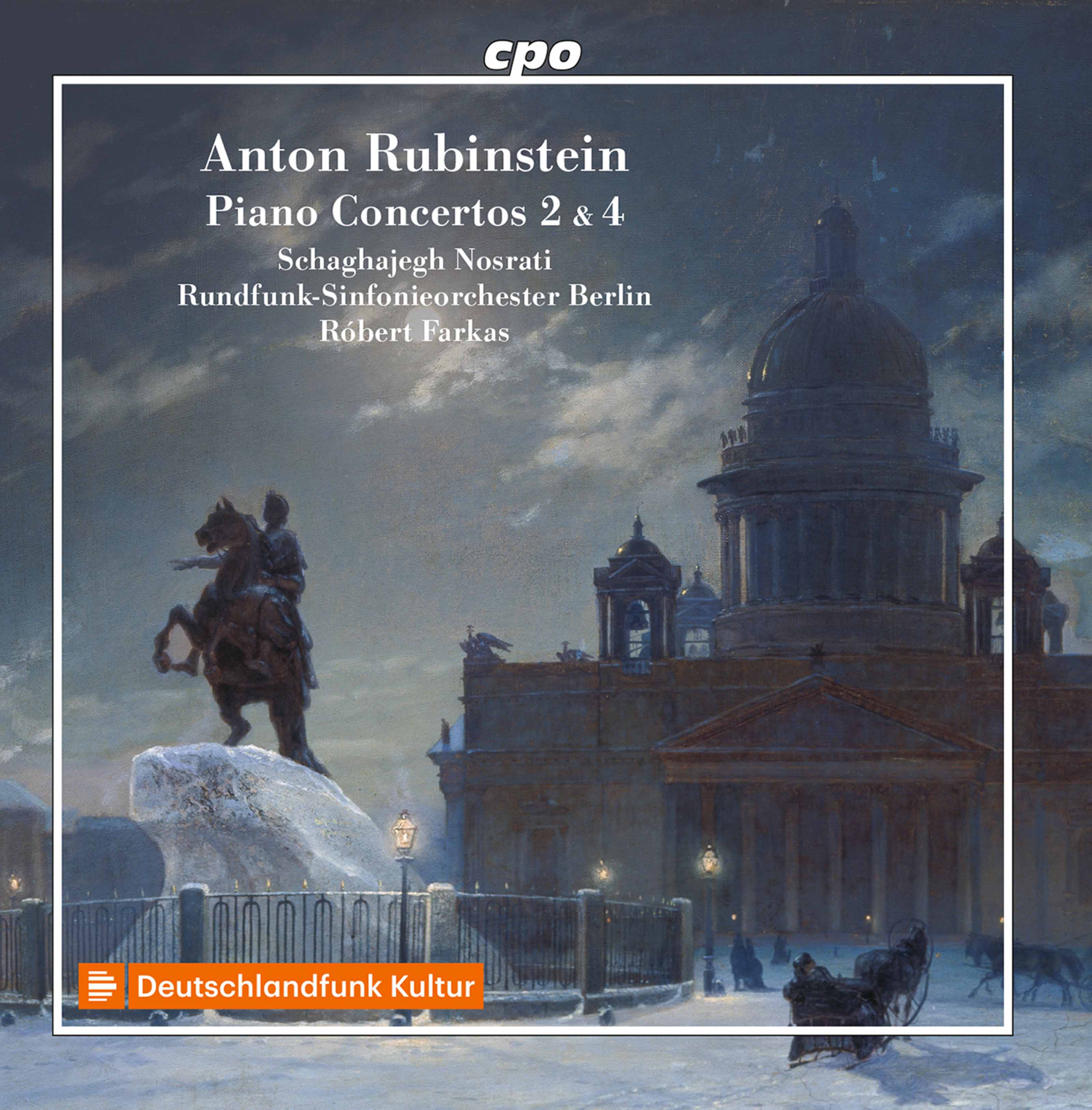Anton Rubinstein Piano Concertos on cpo
A true disc of discoervy from first to last

Anton Rubinstein (1829-1894) is best-known, if at all, for his Melody in F, known to generations of amateur pianists. Let's hear the great Shura Cherkassky, justifiably famous in this sort of repertoire:
Today more famous for founding the St Petersburg Conservatory, Anton Rubinstein's music shows itself of more than worthy of rediscovery, as we shall see. While there is no nationalism associated with "The Five" Romantic Russina composers (Balakirev, Cui, Mussorgsky, Rimsky-Korsakov and Borodin), there is a great sense of compositional conficdence here. Rubsinstein absolutely has his own voice.
The Fourth Concerto (Op. 70, D minor) is a big-boned work, and some will know it through Marc-André Hamelin's performance in Hyperion's Romantic Piano Concerto series (with the BBC Scottish Symphony Orchestra under Michael Stern, where as part of volume 38 it is coupled with Scharwenka's First Concerto). Although billed on the disc cover as Concertos 2 & 4, cpo present the Fourth Concerto first:
The dark-hued central Andante sings a plaintive song but grows into a deep tone-poem:
The finale begins in distinctive fasujon: there is no sense of the formulaic here, and the piano part positively dances. Schaghajegh Nosrati is superb in the way he injects a spring in the music's step:
Hyperion don't tend to put their recordings on YouTube, but here's a live performance of Hamelin in Russia in 2012 for you. to compare. Hamelin's virtuosity is breath-taking (as always) but Nosrati loses out nothing in his reading:
The Second Piano Concerto (F major, Op. 35) dates from full 13 years earlier. In some commentaries it can be referred to as a "fantasia" and idneed there is a real sense of exploration abotu the writing. The long orchestra exposition to the first movement is beautiful, typical of the Romantic era and heard to best effect in the performance by the Berlin Radio Symphony Orchestra under Robert Farkas; and how exhuberant are Nosrati's arpeggiations that form part of his first entrance:
Rubinstein asks for "risoluto e con fuoco" and he certainly receives it here; in total contrast is teh piano's recitative-like entrance to the Nocturne-like central Adagio non troppo:
The finale is full of bubbling bonhomie, and Nosrato's light touch seems absolutely perfect. The marking is a nondescript "Moderato" that completely blies the music here, te life and soul of the party. Yes, the clouds of the disc cover scud across from time to time, but they morph back into some of the most delightful wirint imaginable:
A true disc of discoervy from first to last. I'd like to hear more of Nosrati's playing, too: she clearly has massive technical abliity (there is no sense of strain at any point) but there is a keen musical intelligence at work there, too.
